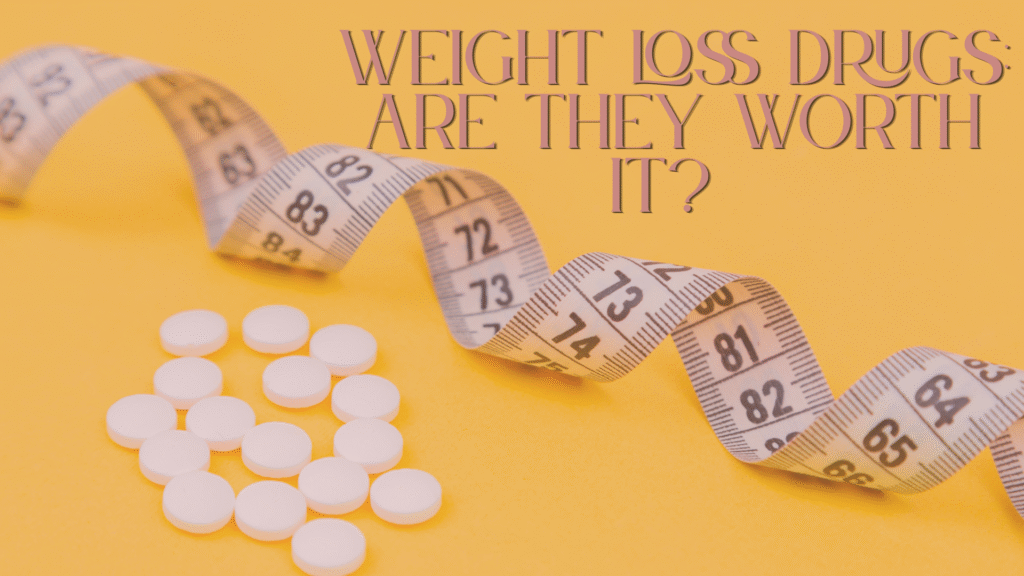Are Weight Loss Drugs the Shortcut Everyone Is Looking For?

In a world obsessed with quick fixes, weight loss drugs have become the new miracle everyone’s chasing. Scroll through social media and you’ll see jaw-dropping before-and-after photos, glowing reviews, and influencers swearing by injections like Ozempic and Manjaro.
Even A-list celebrities are fueling the hype, because let’s face it, losing weight is tough, and the idea of shedding pounds without hitting the gym or counting calories is hard to resist.
But are these medications truly the answer… or just a shiny shortcut with a hidden cost?
How Your Body Burns Fat — And Why Diet and Exercise Are Still King
To understand weight loss, we first need to understand how fat is burned.
When your body doesn’t get enough calories from food, it turns to stored fat for energy—to power everything from movement and thinking to even just breathing
In simple terms:
Eat fewer calories than you burn → Body uses fat for energy → You lose weight.
Diet and exercise help by controlling both sides of the equation:
- Eating less means fewer calories coming in.
- Moving more means burning more calories.
Unlike medications, diet and exercise are modifiable — you can change them according to your needs.
They are also safe and well-studied, providing benefits beyond weight loss like improving heart health, mental clarity, and physical strength.
And let’s agree, no medication can fully replace the lasting power of healthy habits.
What Are the Common Weight Loss Drugs — and How Do They Work?
There are several medications people use for weight loss. Each works differently and comes with its own risks. Let’s break them down:
1. Thiazide Diuretics (Water Pills)
- Examples: Hydrochlorothiazide, Chlorthalidone.
- How they work: Help the body get rid of extra water and salt through the urine.
- Result: Quick but temporary weight loss due to water loss, not fat loss.
Side effects include:
- Dehydration.
- Low blood pressure (causing dizziness and fainting)
- Muscle cramps
- Increased blood sugar or cholesterol in some cases
Bottom line: Thiazides can make you lighter on the scale, but they don’t truly burn fat and can actually be dangerous if abused.
2. Ozempic (Semaglutide) and Other GLP-1 Receptor Agonists
- Examples: Ozempic, Wegovy, Saxenda.
- How they work: Mimic the GLP-1 hormone that:
- Reduces appetite
Slows stomach emptying
- Improves blood sugar control
- Reduces appetite
Result: You feel full sooner, eat less, and lose weight.
Common side effects:
- Nausea and vomiting
- Diarrhea or constipation
- Bloating and stomach pain
- Fatigue
Serious side effects (rare but possible):
- Pancreatitis (inflammation of the pancreas)
- Gallbladder disease
- Increased risk of thyroid tumors (seen in animal studies)
- Kidney injury (due to dehydration from vomiting)
Bottom line: Ozempic and similar weight loss drugs are powerful for weight loss but must be used carefully under a doctor’s supervision.
3. Orlistat (Alli, Xenical)
- How it works: Blocks an enzyme called lipase, which is needed to digest dietary fat.
- Result: About 30% of the fat you eat passes out undigested in your stool.
Common side effects:
- Oily, fatty stools
- Urgent bowel movements
- Frequent gas with discharge
- Bloating and abdominal pain
Serious side effects:
- Liver injury (rare)
- Malabsorption of fat-soluble vitamins (A, D, E, and K)
Bottom line: Orlistat can help with weight loss if you strictly follow a low-fat diet — otherwise, it causes messy and uncomfortable side effects.
4. Other Antidiabetic Medications (like Metformin)
- How they work: Metformin helps the body become more sensitive to insulin, lowers blood sugar levels, and may slightly reduce appetite.
- While originally developed for type 2 diabetes, Metformin is also commonly prescribed for women with PCOS (Polycystic Ovary Syndrome) a condition that affects 1 in 10 women of reproductive age worldwide.
- Many women with PCOS experience insulin resistance, which can lead to weight gain, irregular periods, acne, and fertility issues.
Read more: PCOS Weight Loss: 10 Strategic Tips That Actually Work
Common side effects:
- Nausea
- Diarrhea
- Metallic taste in the mouth
- Weakness
Serious side effects (rare):
- Lactic acidosis (a dangerous buildup of lactic acid in the blood)
Bottom line: Metformin may cause small weight loss but isn’t a primary weight loss drug. It’s mainly used to manage diabetes.
Diet vs. Weight Loss Drugs: Which Is Better?
While weight loss drugs can help, they are not a cure.
They usually work best when combined with diet and exercise — not instead of them.
Diet and exercise:
- Are safer and much cheaper
- Build long-term health
- Help prevent regain after weight loss
- Improve mood, energy, and even sleep quality
Drugs:
- Can give faster initial results, especially in cases of obesity
- Come with real health risks and financial costs
- Often require continuous use to maintain the results — stopping the drug can lead to rapid weight regain
In short:
Medications can be useful tools for some people, especially those struggling with severe obesity. But real, lasting change comes from building habits you can live with, not relying on a pill or an injection.
Final Thought
Weight loss medications can be powerful, especially for people dealing with obesity or medical conditions. But they aren’t magic. They come with side effects, risks, and often, a hefty price tag.
What they can’t replace? The power of real, sustainable habits.
Eating better.
Moving more.
Taking care of your body from the inside out.
Because at the end of the day, a shot won’t teach you how to stay healthy, but your lifestyle will.
Your health isn’t about speed. It’s about strength, consistency, and the long game.
